
In partnership with The Up Institute supporting the professionals working to solve child abuse and neglect globally, through advocacy, public education, and family support programs. A non-profit organization that aims to create safe and healthy communities for children and their families. Up for CHAMPIONS works with community, state, and national organizations to expand and disseminate knowledge about child abuse and neglect. CHAMPIONS – Children’s Heroes Addressing Maltreatment & Prevention with Innovative Optimal New Solutions.
What’s up @ UP?
MARCH 25, 2025 – Celebrating 6 Years of Upstream Impact!
Today marks a powerful milestone for The UP Institute, six years of innovation, growth, and bold collaboration. From advancing upstream solutions to driving systemic change, we’ve been proud to push boundaries in the name of child well-being and prevention. To our extraordinary colleagues, partners, and supporters: thank you. Your dedication fuels our mission and makes this work possible.
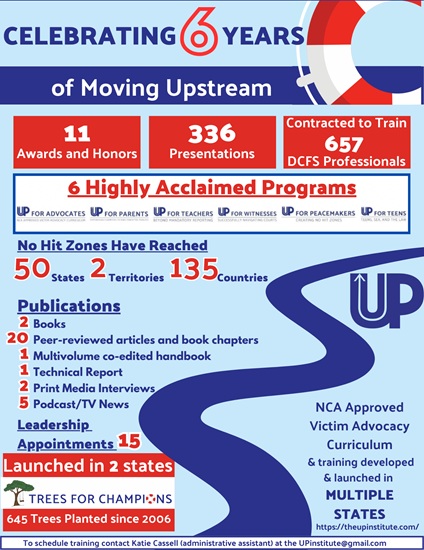
APRIL 15, 2024 – Commemorating Child Abuse Prevention Month
Viola was honored to serve as Keynote Speaker for the Virginia Annual Statewide Child Abuse and Neglect Prevention Conference in Richmond. She addressed, “Navigating the Current: Upstream Solutions for a Smoother Professional Journey.”






MARCH 25, 2024 – Celebrating 5 years of The UP Institute
Celebrating 5 years of innovation, growth, and collaboration at The UP Institute. Today marks a significant milestone for us at @TheUpInstitute as we celebrate 5 years of pushing boundaries and moving upstream! A heartfelt thank you to all for being part of our incredible journey. We could not have reached this milestone without the unwavering support of our exceptional colleagues. Looking forward to many more years of making a positive impact together!
AUGUST 2023 – 28Th San Diego International Summit
Viola was honored to receive the Donald R. Fridley Memorial Award for Excellence in Training and Mentoring at the 28th San Diego International Summit on Violence, Abuse, and Trauma Across the Lifespan. This award is dedicated to the memory of Donald Fridley PhD and is given to an individual or organization that through innovative activities, strategies, and methodologies has contributed to the training, mentoring, and development of future generations of mental health care providers. She also had the opportunity to give three presentations at the conference.
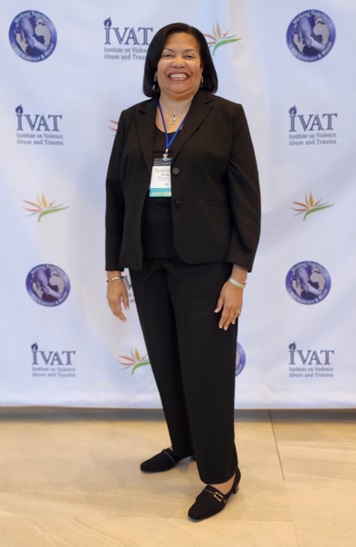
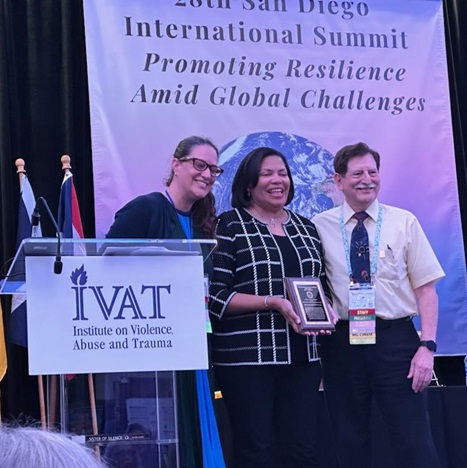
JUNE 2023 – BBF Conference
Viola and Stacie had a marvelous experience at the National Harbor in Maryland for the National Conference to Protect America’s Children. Viola serves on the board of directors for the Beau Biden Foundation and was co-chair of the conference. Stacie provided the opening keynote as they joined with professionals, researchers, and advocates from across the country to address prevention and intervention of child abuse. They were also joined by UP For Champions board members, Drs. Kirsten Erickson and Breshell Jackson-Nevels. Additionally, several APSAC board members presented and C.T. Wilson, member of the Maryland House of Delegates was the recipient of the Beau Biden Foundation Award. “We have a legal and moral obligation to stand up and speak out for children who are being abused. These children cannot speak for themselves.” – Beau Biden, the late Delaware Attorney General.
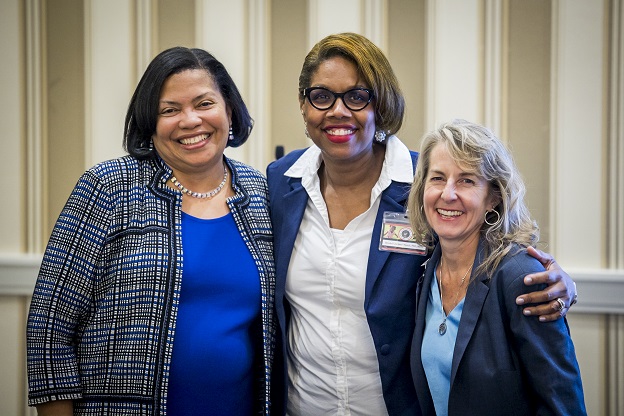
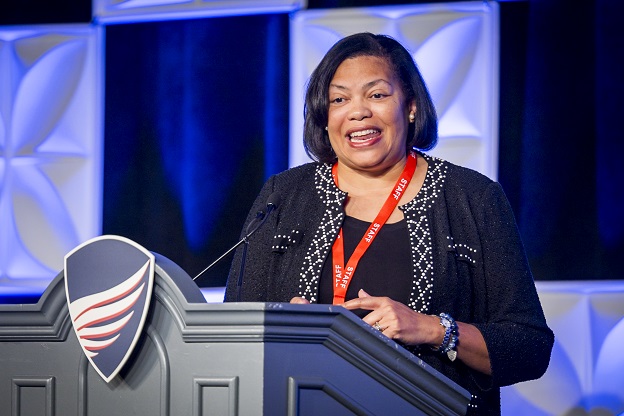
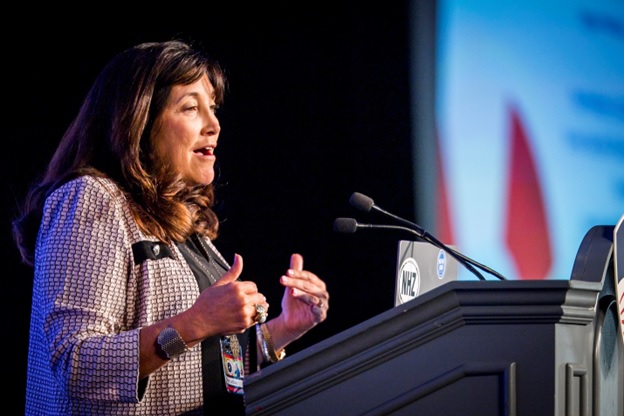
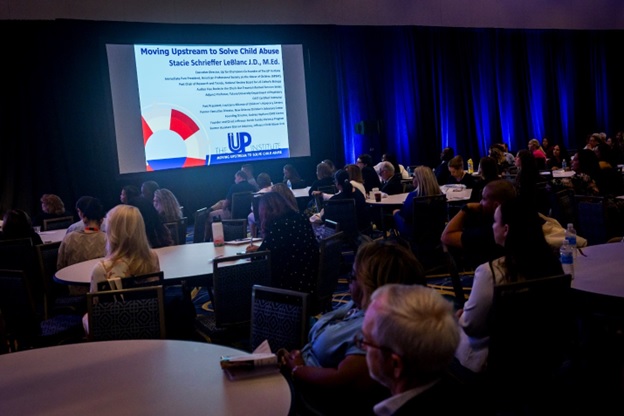
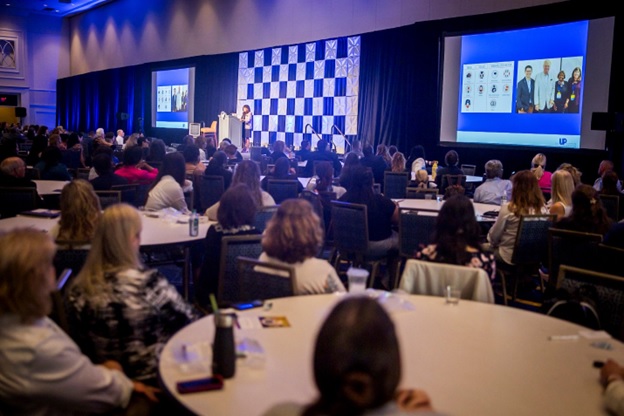
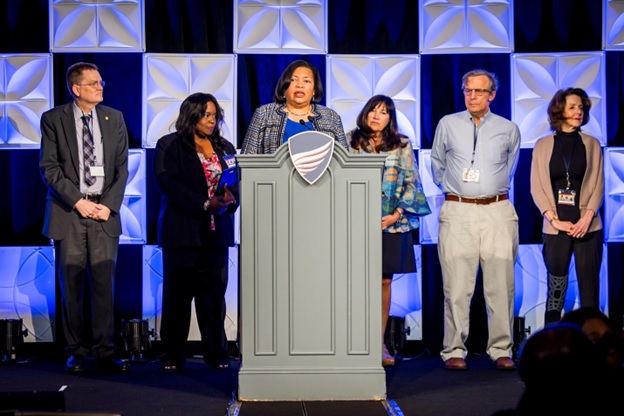
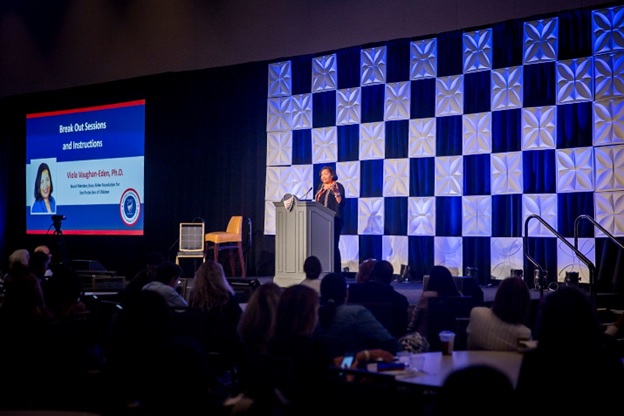
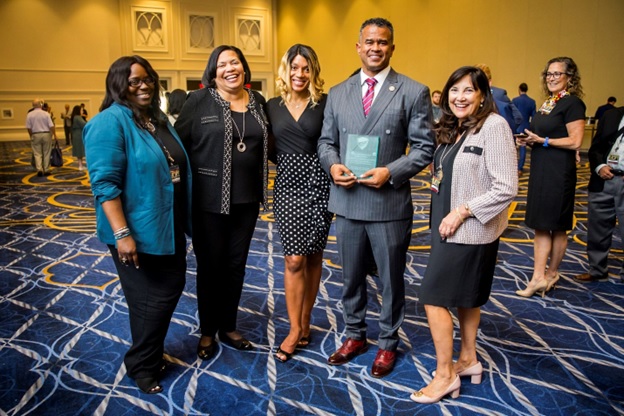
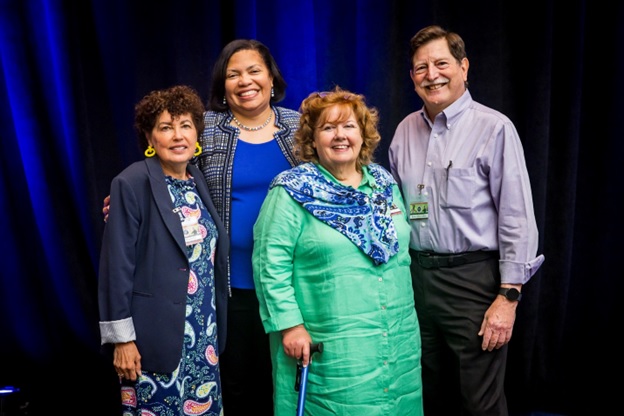
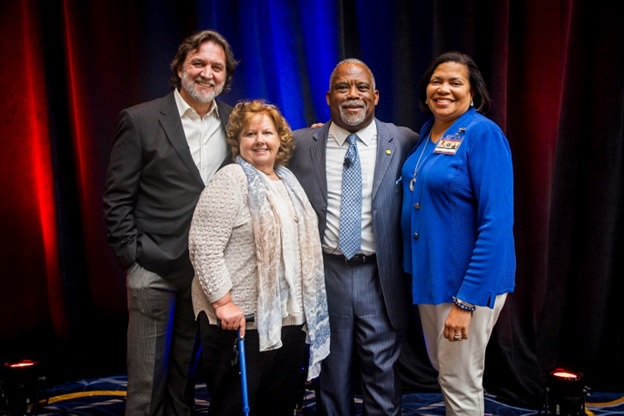
JUNE 2023 – CACMI
Stacie and Viola had a fabulous week upstream in Grand Rapids with rock star family advocates who completed the NCA approved victim services 24-hour curriculum! We are so grateful for all they do for the children, families, and the teams that they serve. Special thanks to the Children’s Advocacy Centers of Michigan for inviting us and their thoughtful planning of an amazing training!
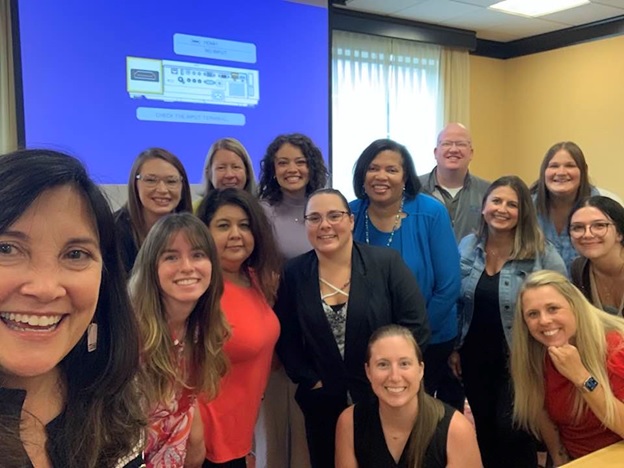
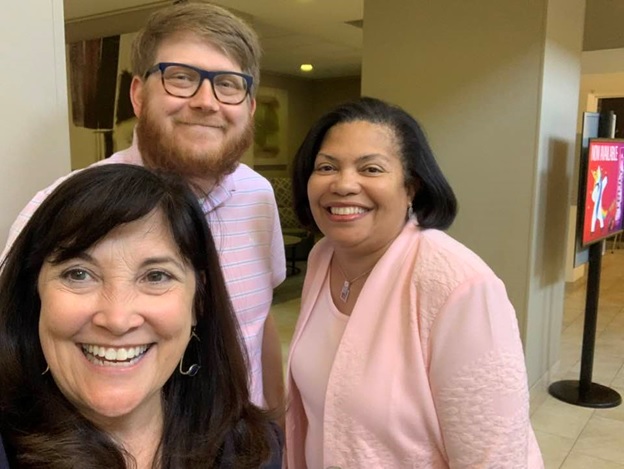
MAY 2023 – LACAC
On May 17-18, Stacie and Viola had the distinct honor and privilege to partner with the Louisiana Alliance of Children’s Advocacy Centers to train victim advocates across the state! Advocates from Jefferson Children’s Advocacy Center, Child Advocacy Services CASA and CAC, Hearts of Hope: Center for Sexual Trauma, Children’s Advocacy Network, Children’s Advocacy Center-Hope House, Baton Rouge Children’s Advocacy Center, and LCMC Health were in attendance for their advanced training.
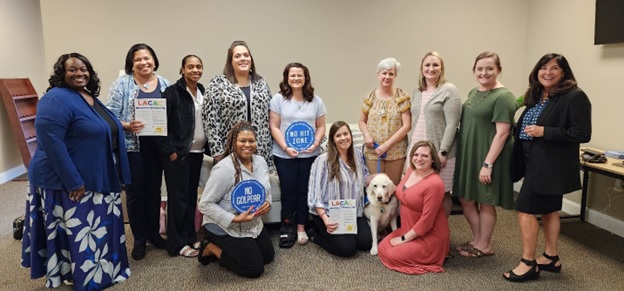
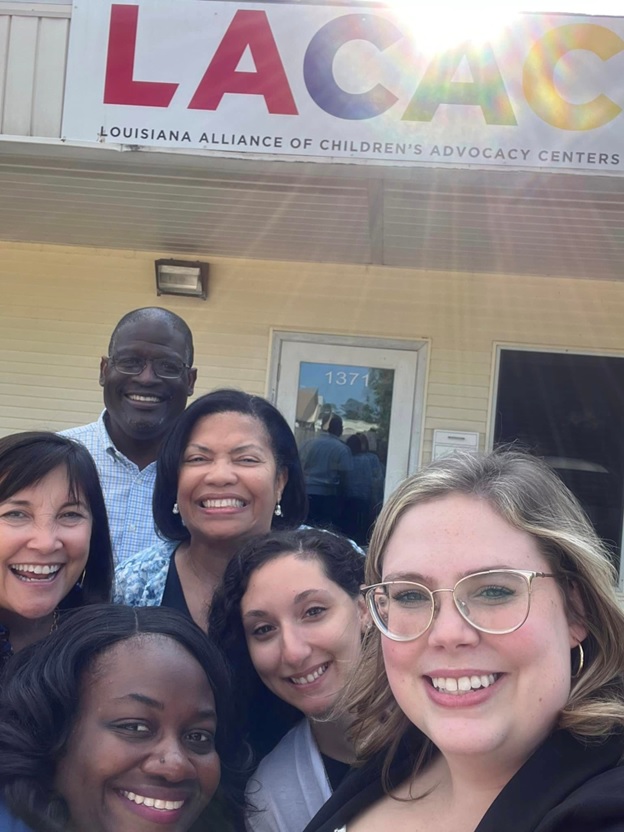
APRIL 2023 – 20th Hawai’i International Summit in Honolulu, HI
Viola and Stacie were invited to give several presentations at the IVAT Conference in Honolulu. Viola served on the Ethnic Identity, Race and Health Equity: Social and Political Issues Plenary Panel with Duke Aiona, Former Lieutenant Governor of Hawaiʻi; Elspeth McInnes, PhD; and Cathy Betts, JD with Robert Geffner, PhD, ABN, ABPP and Sandi Capuano Morrison, MA as moderators. She also provided a post-summit presentation on The Effects of Parental Deployment on Young Children and Strategies for Intervention. Viola and Stacie presented together beside Mike Sloan, MDiv from GRACE on Faith Issues and Prevention of Child Maltreatment with Mike Johnson, Detective (retired) as moderator. Stacie also presented on Teens, Sex, and the Laws: Lessons Learned in Preventing Illicit Teen Behavior. But they made sure to have some fun exploring the island!
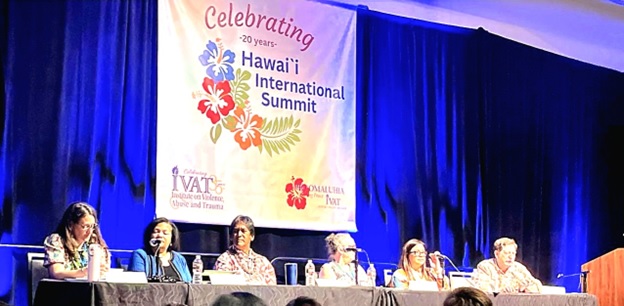
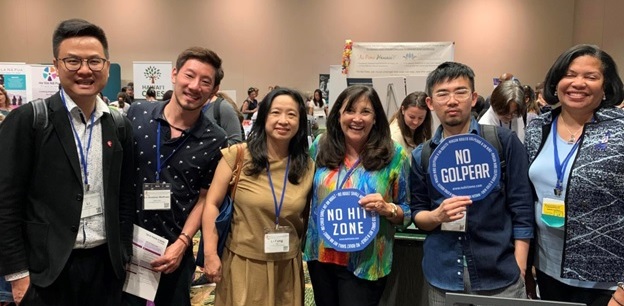
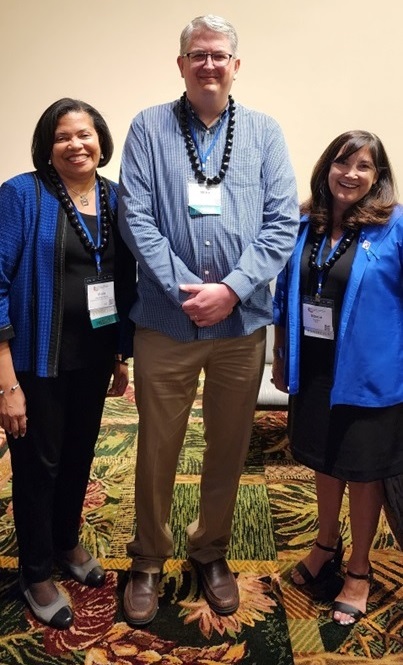
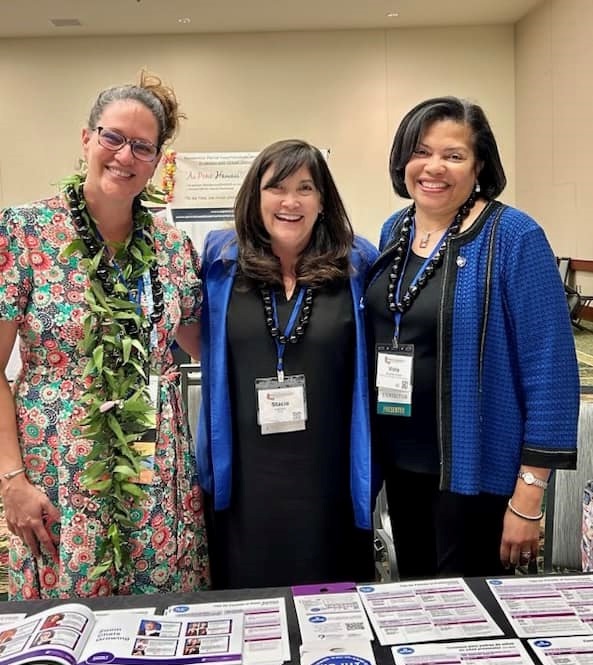
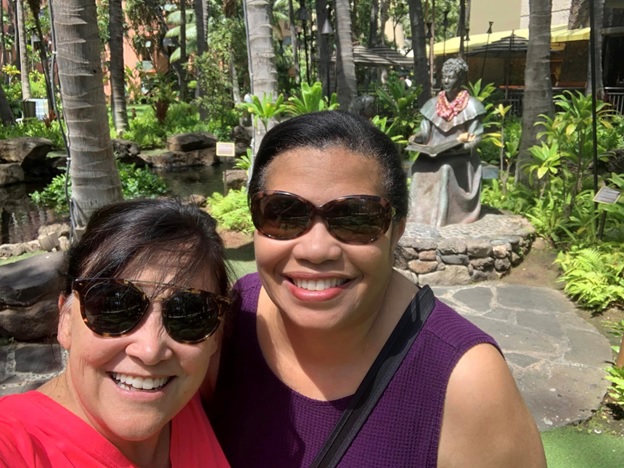
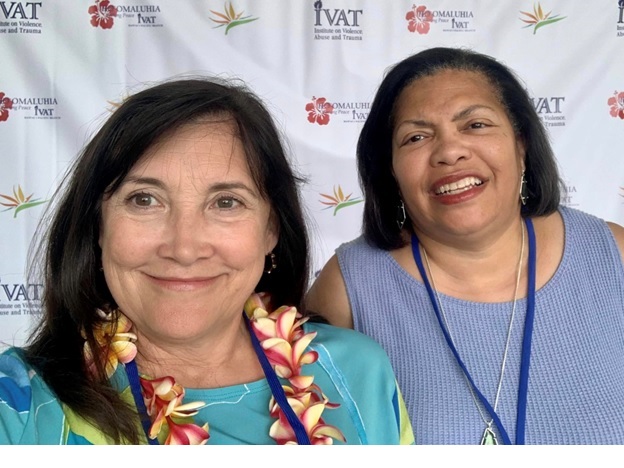
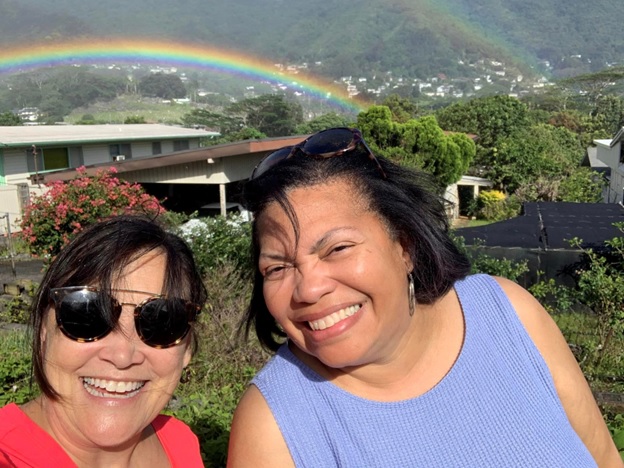
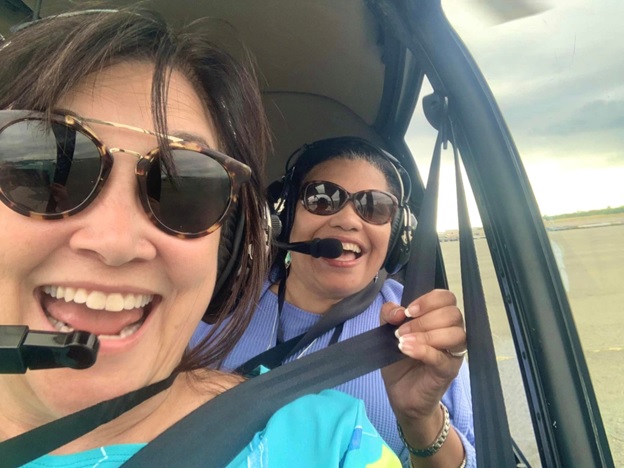
MARCH 2023
Viola was honored to receive the Congressional Research Institute for Social Work and Policy (CRISP) Outstanding Individual in Academia Award, presented by CRISP Director Dr. Charles E. Lewis, Jr. (right) and CRISP Board President Justin Hodge. She was also featured by her alma maters, Virginia Commonwealth University School of Social Work and Norfolk State University.
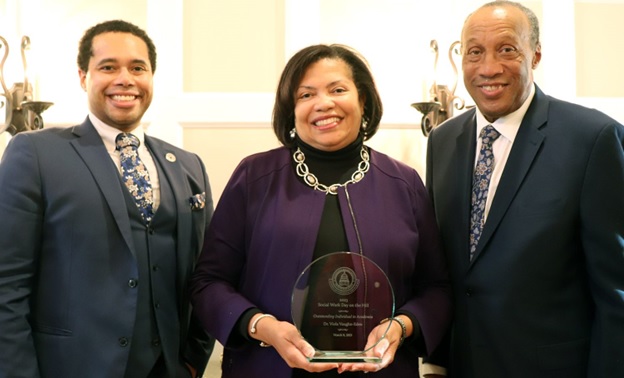
FEBRUARY 2023
Stacie and Dr. Liz Gershoff presented at Stead Family Department of Pediatrics Grand Rounds at the University of Iowa on the harms of physical punishment and to create No Hit Zones as an intervention.
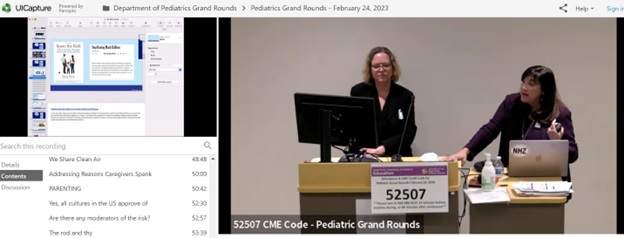
JANUARY 2023
Trees for Champions’ Committee held an event to recognize Louisiana children who died from child abuse during the COVID pandemic. have died in your state in the past year as a result of child abuse.
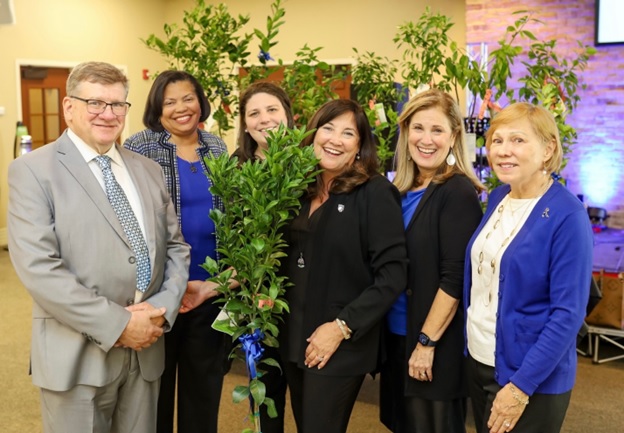
DECEMBER 2022
Stacie designed UP FOR TEENS and regularly educates teens on the laws related to sexual activity, so they can make informed choices.
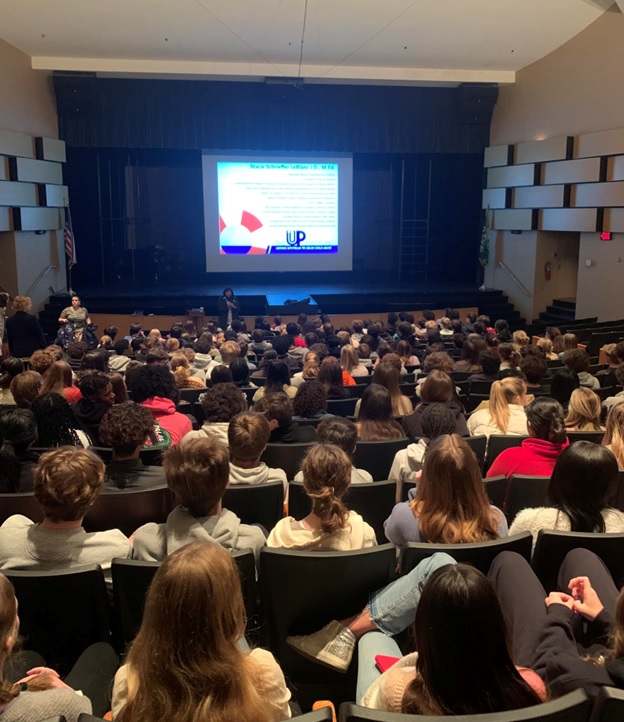
NOVEMBER 2022
UP For Champions’ President and Executive Director were honored to serve as panelists for the Pascale Sykes Foundation Power of Research to Inform Policy Summit. They addressed Remedies for the Aftereffects of Childhood Trauma: The Whole Family Approach with Bruce Perry, MD, PhD; Christina D. Bethell, PhD, MPH, MBA; Allison Stephens, PhD, MEd; Rev. Floyd Thompkins, Jr., MDiv, MA; and Rev. Darrell Armstrong, MDiv, EdS, DD as moderator.
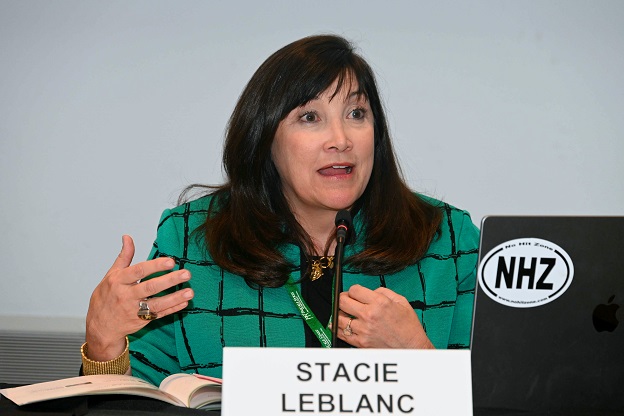
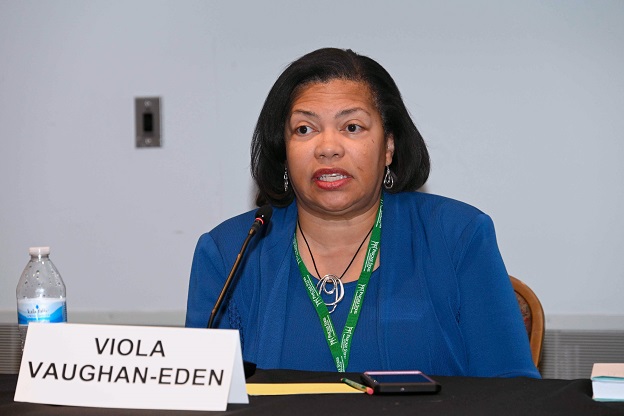
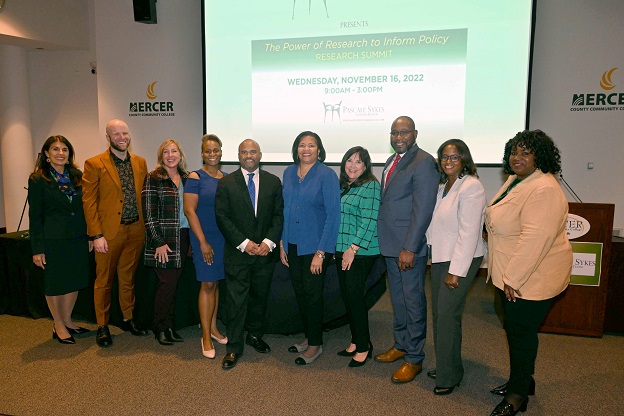
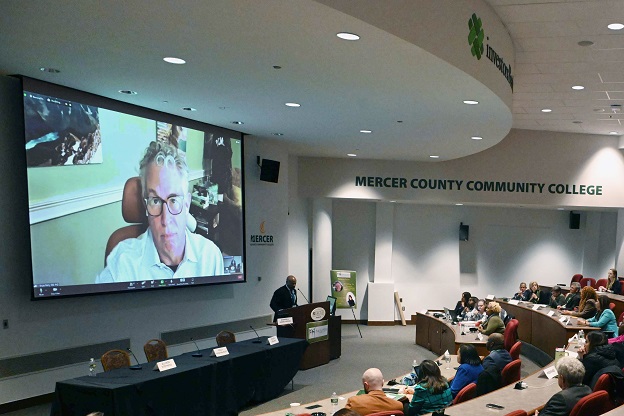
OCTOBER 2022
Stacie was honored to provide a webinar for the Mahoney Family Fund on the harms of hitting children. This interactive webinar addressed the need and critical importance of ending corporal punishment and highlighted the successful implementation of a No Hit Zone at the Coalition for a Better Acre (CBA) in Lowell, MA by Pam LaRoque. Ms. LaRoque is the CBA Youth Development Program Coordinator and presented her implementation of a No Hit Zone as well as answered questions about educational programs at CBA and the specific challenges they faced.
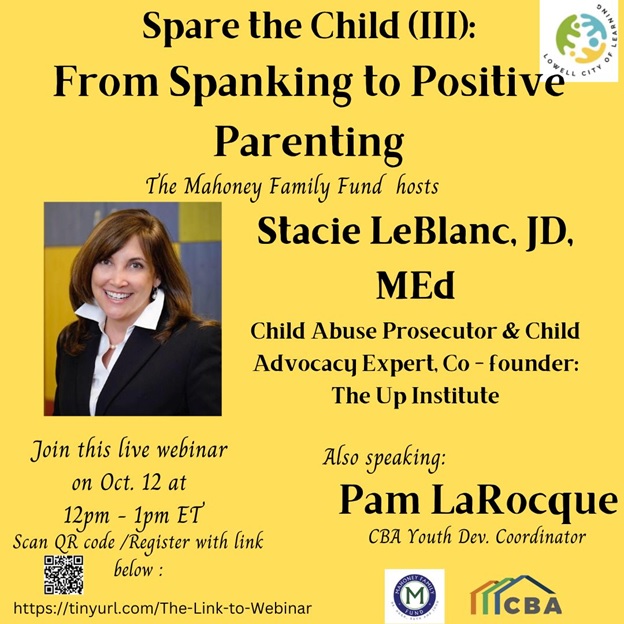
SEPTEMBER 2022
Viola was an invited roundtable discussant with child sexual exploitation and abuse (CSEA) experts from across the US and UK. They convened for the launch of the World Childhood USA-Out of the Shadows Index Report in Washington DC. One of the key findings is that the US does not have a consistent child-centered vision for how to prevent and respond to CSEA. Viola was asked to contribute her expertise to amplify the report’s findings and begin the work of effecting policy changes that will better serve children.
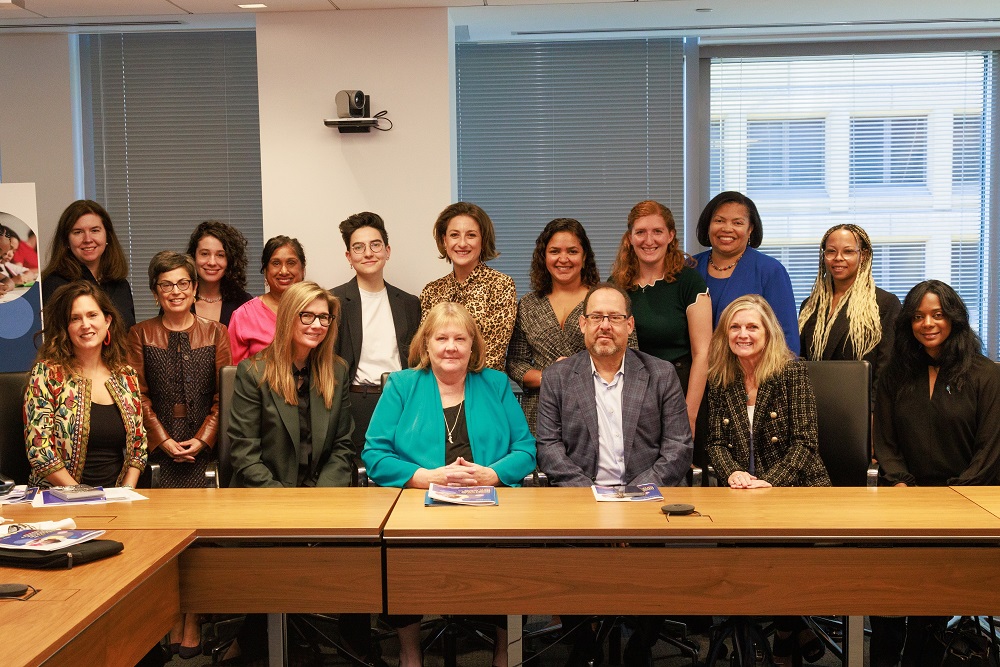
SEPTEMBER 2022
Thank you to the Kappa Delta Sorority at Old Dominion University in Norfolk, Virginia for their long-term support of Prevent Child Abuse Hampton Roads and their ongoing commitment now that it is operating as UP For Champions.
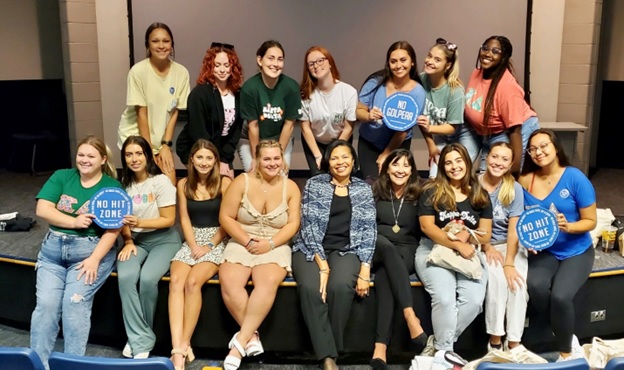
SEPTEMBER 2022
Stacie presented at the 23rd Annual Southern States Victims Assistance Conference.
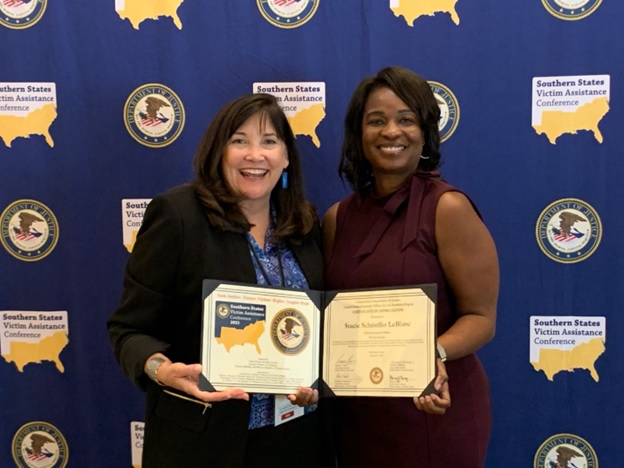
AUGUST 2022
Viola & Stacie provided several presentations at the 27th IVAT San Diego International Summit.
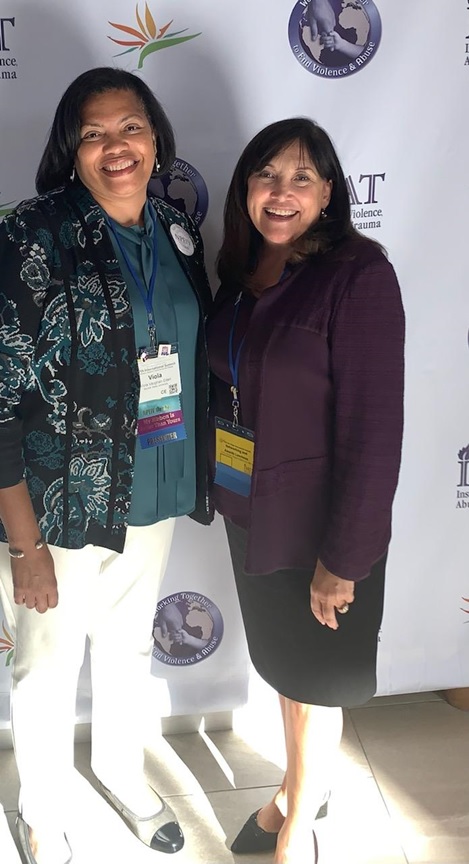
AUGUST 2022
Stacie moderated a panel on The Use of ACEs Science to Promote Early Intervention and Prevention at the 27th IVAT San Diego International Summit with renowned physician and researcher, Dr. Vincent J. Felitti, one of the world’s foremost experts on childhood trauma. The panel also included former APSAC President Mrs. Joyce Thomas and Prevent Child Abuse America research officer, Dr. Bart Klika.
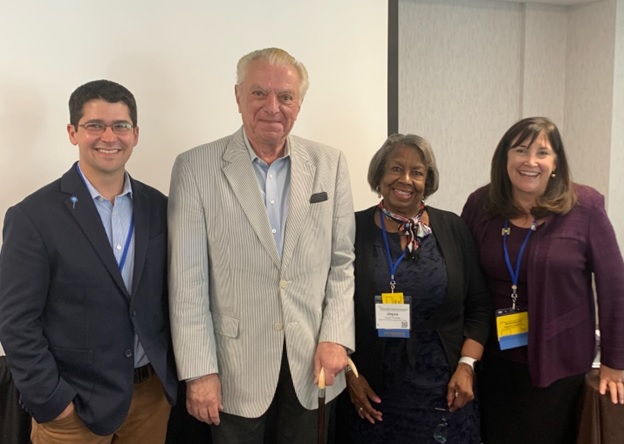
AUGUST 2022
Stacie received the American Psychological Association Division 37 Society for Child and Family Policy and Practice’s Distinguished Contribution to Child Advocacy Award. She was joined by APA members, Dr. Viola Vaughan-Eden, Dr. Ernestine Briggs-King, Dr. Liz Gershoff, and Dr. Christina Rodriguez.
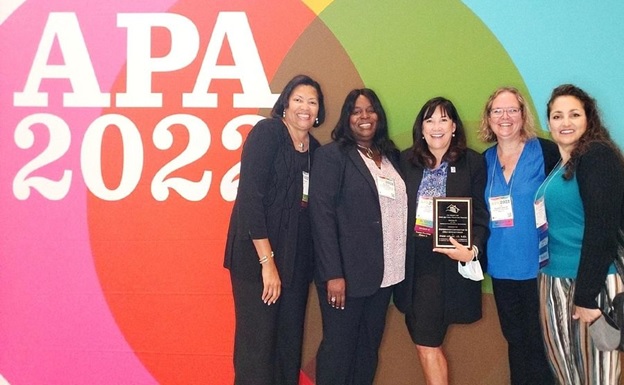
JUNE 2022
Stacie and Viola presented at the 39th NOFSW Conference in New Orleans, LA
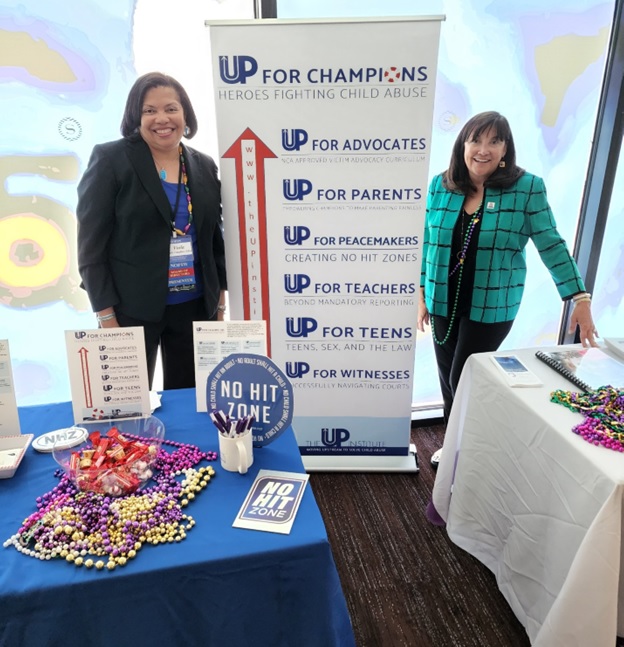
JUNE 2022
Stacie received the APSAC Outstanding Service Award at the 29th APSAC Colloquium in New Orleans, LA
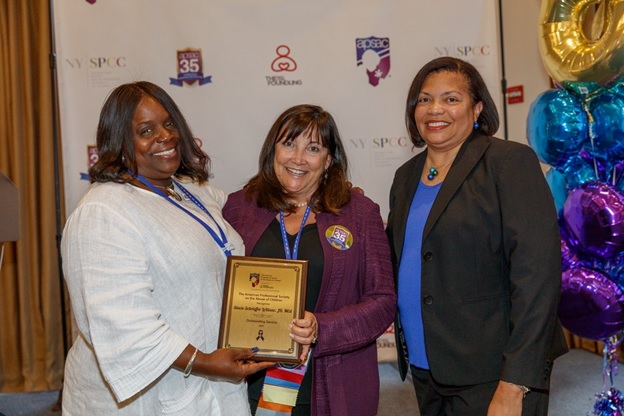
MAY 2022
Viola promoted to FULL Professor at Norfolk State University
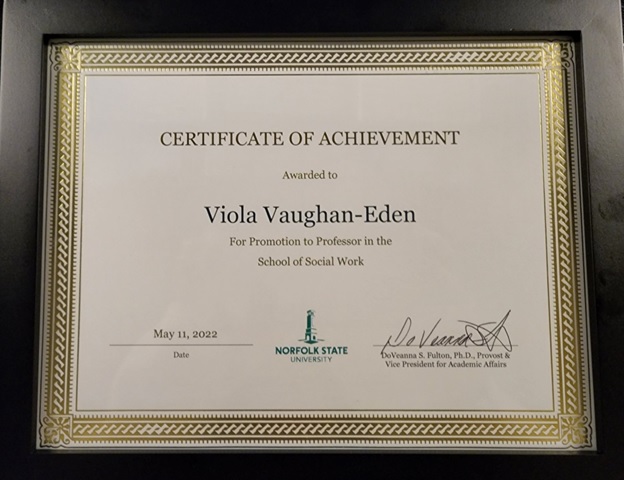
APRIL 2022
Stacie in The Advocate, a Division 37 Newsletter of the American Psychological Association
APRIL 2022
The Up For Champions Victim Advocacy Training curricula has been approved by National Children’s Alliance under the 2023 Standards for Accreditation as meeting the requirements for foundational training for Victim Advocates.
MARCH 2022
Viola presented at the 19th Hawai’i International Summit in Honolulu, HI. She also attended the closing plenary with the late Pono Shim. This was his last speaking engagement and he shared the powerful gift of understanding ALOHA.
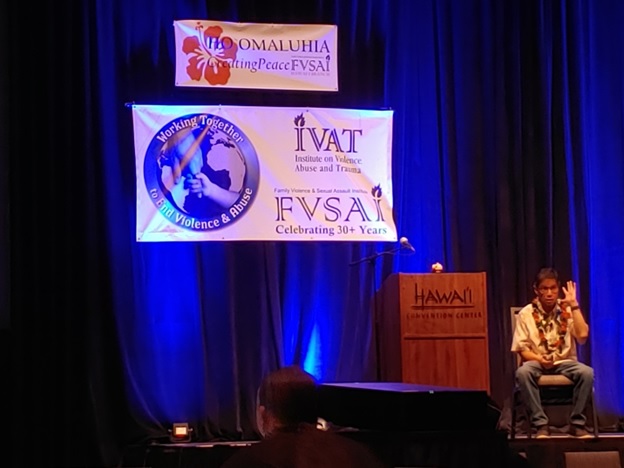
JANUARY 2022
Stacie and Viola spoke at Holy Light Missionary Baptist Church in Los Angeles, CA on Positive Parenting, Corporal Punishment, Spanking, and No Hit Zones
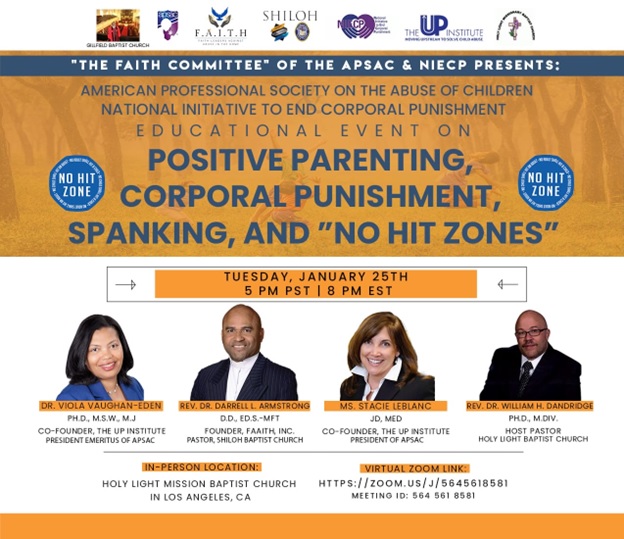
NO HIT ZONES
UP For Champions raises awareness about the most prevalent risk factor for child abuse, physical discipline. UP executives designed No Hit Zone materials for public use because research demonstrates it is a promising practice for changing attitudes about parent-to-child hitting. For additional information and resources visit our No Hit Zone initiative and download an NHZ Toolkit.

